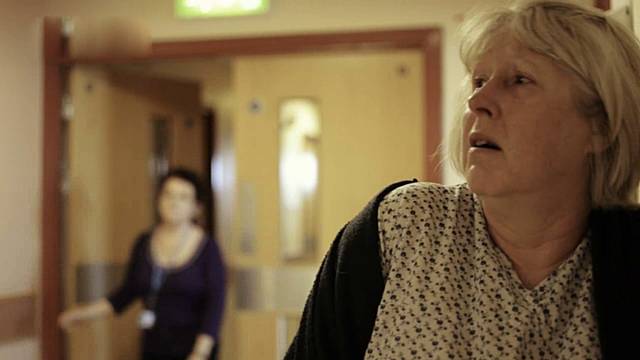Should patients with dementia who wander be electronically tagged?
Date published: 20 June 2013

Should patients with dementia who wander be electronically tagged
Technology that allows real time tracking is being pushed by authorities to cut the costs of finding patients with dementia who have got lost. Can they reduce the risk of harm or are they just quick fixes to suit carers? And is it ethical? Two experts debate the issue on bmj.com today (20 June).
Rupert McShane, a consultant in old age psychiatry at Oxford Health NHS Foundation Trust, says GPS trackers are not a panacea, but they do mean that patients can be found more quickly.
And rapid recovery reduces risk, he argues. Half of all people with dementia who are missing for more 24 hours die or are seriously injured, yet carers often delay calling for help, wanting to avoid involving the police if at all possible.
Also, when someone with dementia gets lost, it at least doubles the risk of admission to a care home. “It is therefore surprising that there has not been more attention paid to ways of reducing this,” he writes.
He believes that the ethical challenges are surmountable and describes several examples where tracking devices can help in balancing safety and autonomy for vulnerable patients.
“The evidence that patients are given more freedom once they start using a tracker is contradictory, but the finding that the device can reduce conflict between patient and carer is plausible and useful,” he adds.
Privacy is important, he says, “but the desire for privacy and isolation should not be confused with getting lost.” He concludes: “It is time to move on - and we should begin by abandoning the term “tagging,” which has stigmatising associations.”
But Desmond O’Neill, a professor of geriatric medicine at Trinity College Dublin, argues that care must be patient centred rather than looking for quick fixes to suit carers.
The acceptability of tagging “has generally been researched among formal and informal carers only, with the views of those with dementia relegated to the sidelines,” he says.
Instead, he points to an evolving body of work on technology and dementia “that has led to a range of assistive technology - for example, picture telephones, lamps, lost item locators – which are genuinely enabling and supportive of independent living.”
He believes this positive and person centred approach needs to be pursued with wandering. He also suggests that tracking devices “may provide a false sense of security” and says more traditional methods such as identity bracelets “may be equally effective and less costly.”
He notes that the police force involved in implementing a tagging programme for people with dementia in the UK has quoted money saving as a primary objective, and that the practice appears to be increasingly widespread among UK councils.
“Is the impetus for shaping policy for a complex and common syndrome to be driven by policing, putative cost effectiveness, and ethical insensitivity, or can we use this debate to reclaim a person centred approach that embraces the person with dementia as the lead collaborator in a coalition of care?” he concludes.
Do you have a story for us?
Let us know by emailing news@rochdaleonline.co.uk
All contact will be treated in confidence.
Most Viewed News Stories
- 1Local Multi Academy Trust welcomes new school
- 2Rochdale Gramophone Society to close after 93 years
- 3Council announces plans for Hopwood Hall Estate, - as angry Hopwood DePree holds "urgent" public...
- 4Friday and Saturday’s fire festival cancelled due to severe weather
- 5MP spotlights ‘hidden horror’ of domestic abuse with dedicated surgery
To contact the Rochdale Online news desk, email news@rochdaleonline.co.uk or visit our news submission page.
To get the latest news on your desktop or mobile, follow Rochdale Online on Twitter and Facebook.


